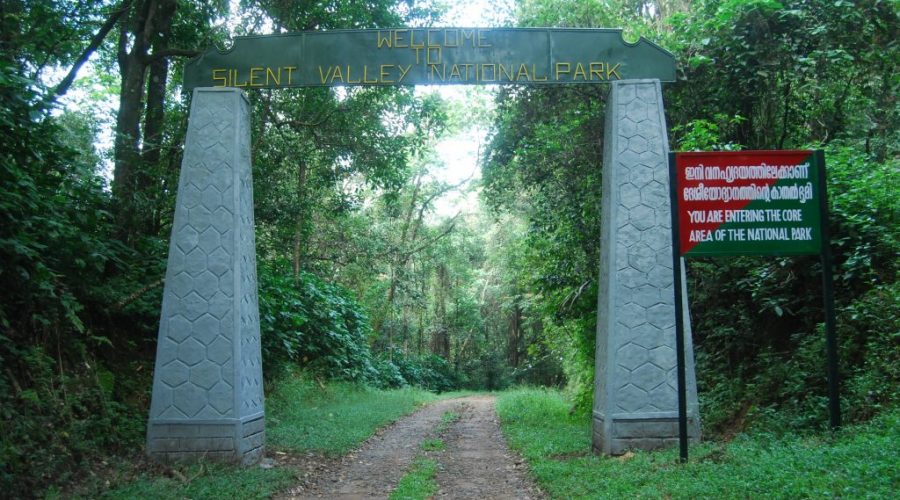Silent Valley National Park
Silent Valley National Park is a national park in Kerala, India. It is located in the Nilgiri hills, which are surrounded by a buffer zone of 148 km2 (57 sq mi). This national park has some rare species of flora and fauna. This area was explored in 1847 by botanist Robert Wight. It is located in the border of Mannarkkad Taluk of Palakkad district, Nilambur Taluk of Malappuram district, Kerala, and Nilgiris district of Tamil Nadu.
It is located in the rich biodiversity of Nilgiri Biosphere Reserve. Karimpuzha Wildlife Sanctuary, New Amarambalam Reserved Forest, and Nedumkayam Rainforest in Nilambur Taluk of Malappuram district, Attappadi Reserved Forest in Mannarkkad Taluk of Palakkad district, and Mukurthi National Park of Nilgiris district, are located around Silent Valley National Park. Mukurthi peak, the fifth-highest peak in South India, and Anginda peak are also located in its vicinity. Bhavani River, a tributary of Kaveri River, and Kunthipuzha River, a tributary of Bharathappuzha river, originating in the vicinity of Silent Valley. The Kadalundi River has also its origin in Silent Valley.
The national park is one of the last undisturbed tracts of South Western Ghats mountain rain forests and tropical moist evergreen forest in India. Contiguous with the proposed Karimpuzha National Park (225 km2 (87 sq mi)) to the north and Mukurthi National Park (78.46 km2) to the north-east, it is the core of the Nilgiri Biosphere Reserve (1,455.4 km2), and is part of the Nilgiri sub-cluster (6,000+ km2), the Western Ghats World Heritage Site, recognized by UNESCO in 2007.
Plans for a hydroelectric project that threatened the park’s biodiversity stimulated an environmentalist social movement in the 1970s, known as the Save Silent Valley movement, which resulted in canceling the project and creating the park in 1980. The visitors’ center for the park is at Sairandhri.






